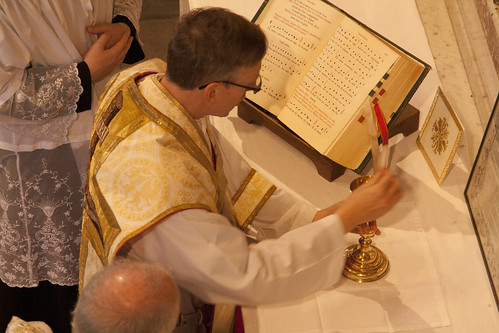A key part of the argument for the liturgical reform was that it was needed for 'the missions'. What was never explained was why a reform which responded to objections from Enlightenment thinkers to the liturgical tradition was appropriate for cultures to which such objections were completely alien, and indeed incomprehensible. The Emperor Joseph II, Voltaire, and the like complained about excessive ritual, supposedly superstitious veneration of holy places, images, and objects, the obscurantist use of sacred languages, silence, and so on and so forth. What on earth have these concerns to do with traditional societies? Unless, perhaps, one imagines that they are Rousseauist 'noble savages', like the lovers of 'noble simplicity' imaginatively projected in the Early Church by liturgists.
Daniel Dolley put paid to such fantasies about the native peoples of South America in his excellent
article in the Catholic Herald which I
commented on here, and this weekend Dr Pia Joliffe has had a letter published in the same place about the traditional culture she studied in Thailand, the Karen.
SIR – It was with great joy and interest that I read Daniel Dolley’s article on “how to evangelise the Amazon” (Cover story, January 24).
Dr Dolley’s point that the Amazon communities are more traditional in their approach to gender roles, religion and ritual action than those who advocate on their behalf is also valid for the Karen communities in northern Thailand, where I did my own ethnographic fieldwork for my DPhil in International Development.
 On Thursday 20th the first public Traditional Mass was sung in the chapel of Campion Hall, Oxford.
On Thursday 20th the first public Traditional Mass was sung in the chapel of Campion Hall, Oxford.






